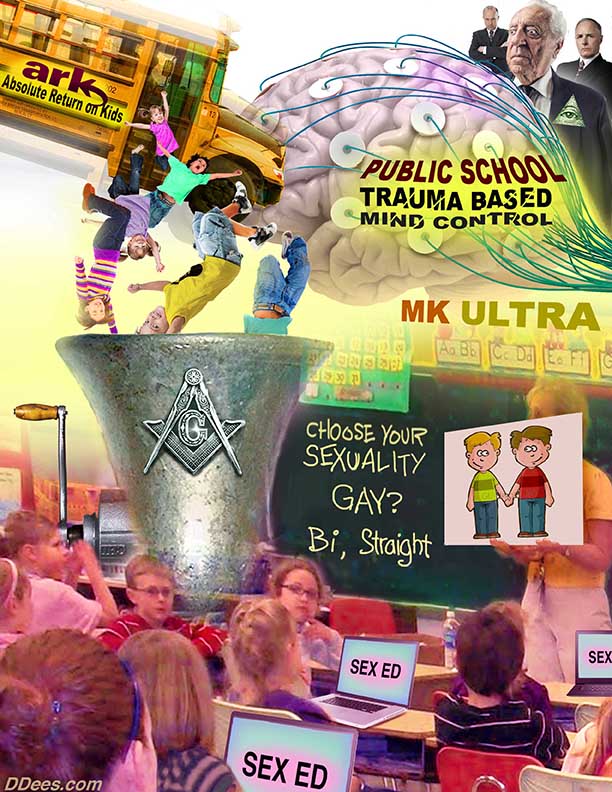Delusions are a symptom of many mental health conditions. But when are they enough to signify delusional disorder?
Source: https://psychcentral.com/disorders/delusional-disorder-symptoms
A delusion is an unwavering belief in something despite evidence that the belief is false. An example of a delusion would be a belief that you’re in a romantic relationship with a celebrity whom you’ve never met or spoken with.
Delusions are a part of many conditions, most often conditions that involve psychosis. These include schizophrenia, schizoaffective disorder, and bipolar I disorder. You might have delusional disorder if you experience delusions but no other symptoms (like hallucinations or mania).
Some delusions are harmless and may not impact your behavior in any major way. Other delusions, however, can be damaging to your personal and professional relationships.
What are the signs?
When you experience a delusion, you believe that what you’re thinking or feeling is true, despite evidence to the contrary. There’s usually nothing anyone can say or do to convince you otherwise, even though almost nobody else shares this belief.
Imagine how this gets turned on its head when society in general goes Delusional and only a very small few stay Sane. (Who Is Delusional Now?) The Majority is normally wrong in most instances, you may fact check that if you need to.
A mental health professional may diagnose delusional disorder when you have one or more delusional thoughts for over a month that aren’t explained by other mental health conditions.
According to the Diagnostic and Statistical Manual of Mental Disorders, 5th edition (DSM-5) — a clinical tool for mental health assessment — delusional disorder is diagnosed when:
- you’ve been having delusions for a month or longer
- your symptoms don’t quite meet the criteria for schizophrenia
- hallucinations, when present, aren’t prominent and are related to the delusion
- outside of the delusion, your functioning isn’t majorly impaired and your behavior isn’t out of the ordinary
- any depressive episodes that coincide with your delusions are shorter than the delusional period
- no other physical or mental condition can explain your symptoms
Importantly, your cultural beliefs must be taken into account when diagnosing delusional disorder. People from different cultures have different beliefs, and differing cultural beliefs don’t indicate a delusional disorder.
Delusional disorder is a rare diagnosis. According to the DSM-5, the lifetime prevalence of delusional disorder is approximately 0.2%.
Delusions can be linked with paranoia, which refers to intense, anxious thoughts that are often related to threats or conspiracy. Paranoia can turn into a delusion when an irrational belief becomes so fixed — despite evidence to the contrary — that nothing will convince you that it’s untrue.
Delusional disorder only impacts your thoughts, so it’s often possible to lead a typical life. The nature of delusional disorder often means you don’t know you’re living with a condition. Because of this, it’s likely that many cases go unreported.
The signs and symptoms of delusional disorder can vary based on the delusion, but may include:
- Passionate arguing in favor of the belief. You’re often ready to argue in favor of the belief. You might be able to make a convincing case, no matter what science or reality indicates.
- Acknowledging that others view your beliefs as irrational, but not accepting their evidence. People around you may say that your belief isn’t rational, but you’re unable to accept their arguments.
- Irritability. Feeling like others refuse to believe you or are unwilling to hear your perspectives can lead to feelings of frustration.
- A desire to involve the government. When you feel as though something important is happening as part of a delusion, the government can feel like a powerful foe or ally. Organizing protests, visiting local agencies, or calling political offices can make you feel as though you’re bringing awareness to what you believe in.
- Antagonistic behavior. In hopes of getting a response or adding credibility to a delusion, you may dedicate time toward excessive actions, like letter writing. If you believe you’re in a relationship with a celebrity, for example, you may send hundreds of letters to their fan site. When they don’t respond, you may convince yourself there’s an explanation.
- Legal difficulties. Delusion can make you act in untoward ways toward family, friends, and strangers. This can result in legal actions against you. Or, you may take legal actions against those around you. If a delusion fixates on your neighbor trying to harm you, for example, you might attempt to take out a restraining order.
In some cases of delusional disorder, false beliefs about loved ones can result in harmful or violent behavior, such as delusions that a partner is being unfaithful. This can cause extreme reactions or acts of aggression toward that person or the people you suspect are involved.
If you are concerned about or experiencing abuse or violence, immediate help is available. You can contact the National Domestic Violence Hotline online, or call or text “START” to 800-799-SAFE (7233). This resource is completely confidential.
Types of delusional disorder
While any false belief can be a symptom of delusional disorder, there are five primary subtypes of this condition.
- Grandiose. You believe you have great unrecognized talents, superpowers, or important discoveries. This is also called delusions of grandeur.
- Persecutory. You believe you’re the target of harmful intent, being sabotaged, or being conspired against.
- Erotomanic. You focus on the belief another person is in love with you.
- Jealous. You falsely believe your significant other has been unfaithful.
- Somatic. Delusions focus on your bodily functions or sensations.
In some cases, there may be no dominant theme to delusions. This type of delusional disorder is classified as “mixed type.” Delusional beliefs that don’t fit into any category are classified as “unspecified.”
If you live with delusional disorder and your beliefs are clearly implausible, your diagnosis may come with a “bizarre content” specifier. An example of delusional disorder with bizarre content would be experiencing delusions of mind control — feeling convinced that someone is controlling your thoughts and behaviors from a distance.
Not everyone experiences delusional disorder for the same amount of time. In some cases, your symptoms may improve or go away completely. For other people, symptoms of delusional disorder remain consistent.
Treatments
Delusional disorder poses a challenge when it comes to treatment. You may not have insight into the condition you’re living with. It’s not easy to seek treatment for something you don’t believe you have.
However, there are treatment options available. Working with a therapist within one of the following modalities may help improve your symptoms:
- psychotherapy
- cognitive behavioral therapy (CBT), or CBT specifically for psychosis
- metacognitive therapy
A mental health professional might also suggest medications to help with your symptoms. Medications could include:
- antipsychotic medication
- antidepressants
- sedative medications
Next steps
With delusional disorder, recognizing the need for treatment is often the first challenge.
If you’re feeling angry, if you’re obsessing over a specific idea, or if you’ve been told by multiple people that you’re not seeing something clearly, it may be time to speak with a mental health professional.
Someone is always available to work with you on managing symptoms of delusional disorder. Psychotherapy and medications can offer a source of relief while you work to develop long-term treatment goals.
Because delusions can indicate other serious mental health conditions, you may want to consider speaking with your healthcare team as soon as you experience symptoms.
As Mental Health America says, treatment for delusional disorder can take some time, but recovery and re-connection are possible.
THERE IS HELP AVAILABLE – RADICAL TRUTH THERAPY
Radical New Therapy called WE CAN FIX STUPID has just been invented which is showing Great Promise in the Few Clinical Trials we have completed.
To demonstrate the Maddness some further examples are in the images below.













0 Comments